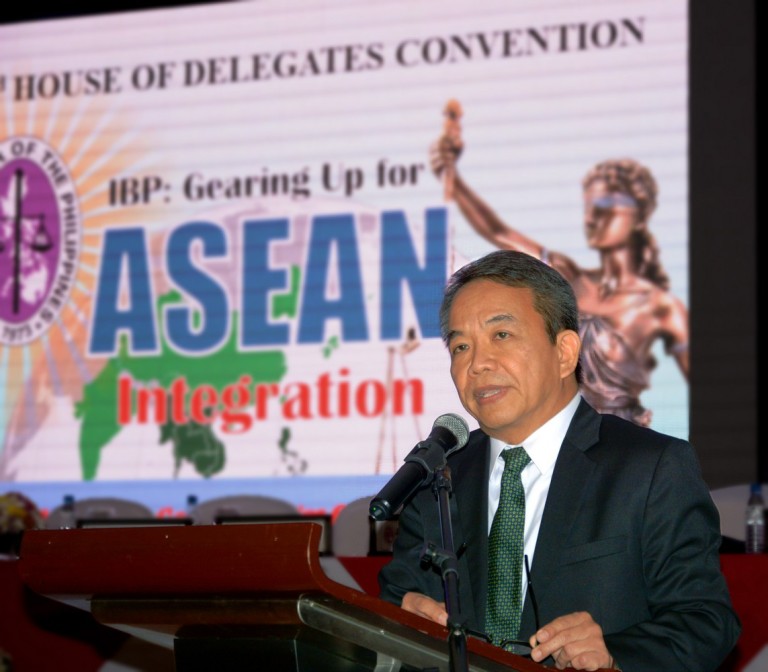 PDRCI Secretary General Roberto N. Dio discussed how the Philippines can become a center of excellence in international arbitration at the ASEAN Integration Seminar and Workshop held on January 30, 2016 at the recently concluded 22nd House of Delegates Convention of the Integrated Bar of the Philippines in General Santos City.
PDRCI Secretary General Roberto N. Dio discussed how the Philippines can become a center of excellence in international arbitration at the ASEAN Integration Seminar and Workshop held on January 30, 2016 at the recently concluded 22nd House of Delegates Convention of the Integrated Bar of the Philippines in General Santos City.
Mr. Dio began with the basics of commercial arbitration: what arbitration is and is not. He then discussed the Philippine experience in arbitration, noting the low referral of disputes to arbitration despite the fact that the Philippines was the first in Asia to pass a law on arbitration in 1950 through the New Civil Code and in 1953 with the enactment of the Arbitration law.
He attributed the low utilization of arbitration in the Philippines to (1) a poor legal framework; (2) lack of familiarity with arbitration; (3) lack of trained and experienced arbitrators; (4) bias for litigation; (5) judicial review; (6) interventionist courts; and (7) lack of expertise in commercial and technical disputes.
He proposed the adoption of new laws and policies that favor arbitration to make the Philippines a preferred venue for international commercial arbitration. These were: (1) creation of special ADR courts; (2) setting up an ADR registry of disputes or matters referred to arbitration and other forms of ADR; (3) tax incentives to contracts with ADR clauses; (4) tax incentives to ADR practitioners; (5) budgetary support to the Office for Alternative Dispute Resolution, an agency under the Department of Justice; (6) training of ADR practitioners; and (7) development of expertise in commercial and technical arbitration.
Other invited speakers during the convention were Ms. Ma. Cecilia A. Deodores-Labadan of the National Economic Development Authority, who gave an overview of the ASEAN Economic Community; former law dean Merlin M. Magallona, who spoke on preparing lawyers for ASEAN integration; Edmund J. Kronenburg, managing partner of Braddell Bros. LLP Singapore, who shared his insights on the evolving practice of law in Singapore and other countries; and University of Santo Tomas law dean Nilo T. Divina, who discussed how to prepare law students for law practice in the ASEAN.
